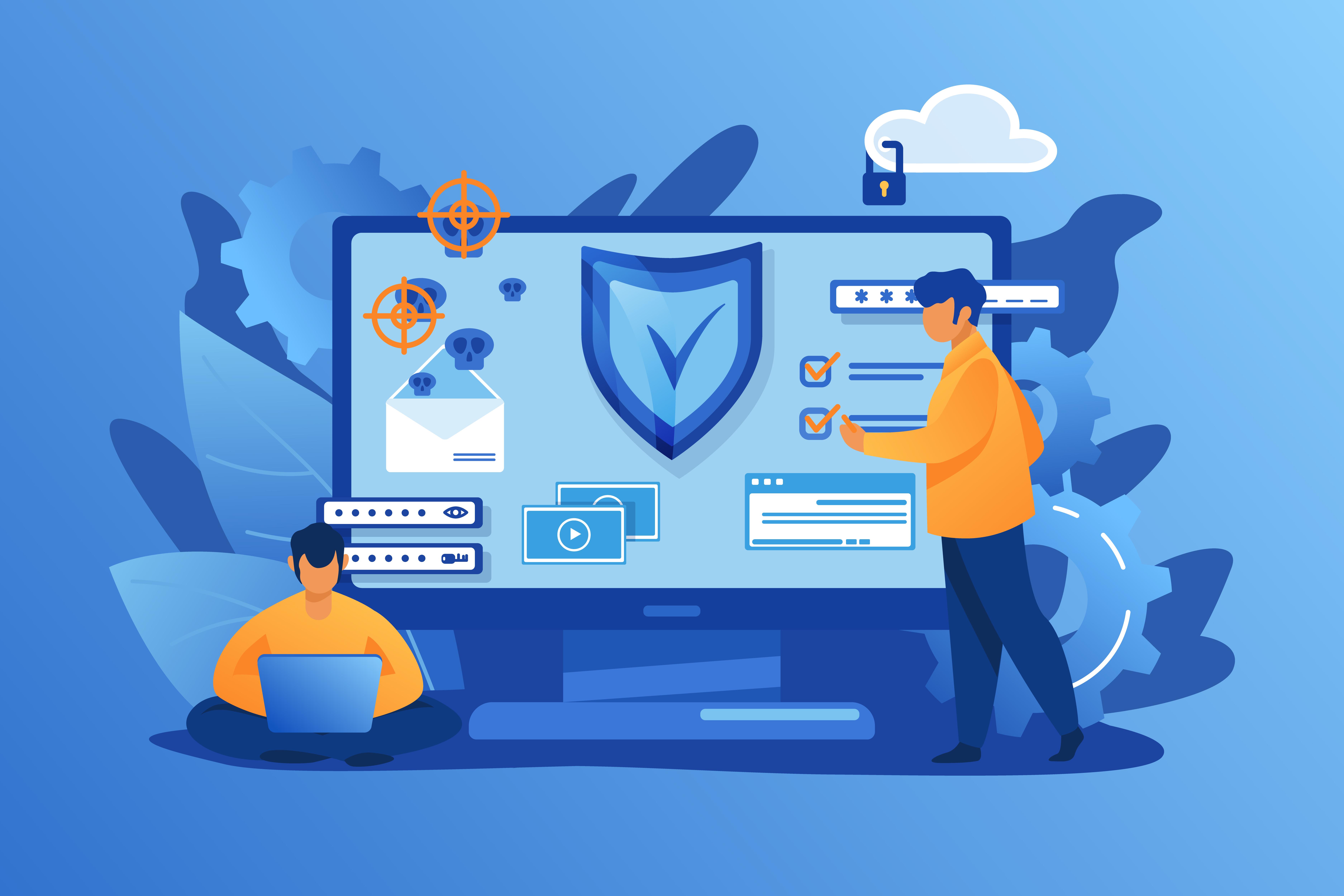Cybersecurity Essentials for Software Developers: Navigating the Digital Defense Realm

In today's interconnected digital landscape, the role of software developers has become paramount. From mobile apps to web platforms, developers craft the very tools that define our technological experience. But in this brave new world, with great coding power comes great cybersecurity responsibility. In this article, we'll embark on a journey to uncover the cybersecurity essentials every software developer should master, from writing secure code to warding off lurking vulnerabilities.
Fortifying the Foundation: Secure Coding Practices
When it comes to cybersecurity, the journey begins with writing secure code. Secure coding practices serve as the cornerstone of a robust software application. Here are some essential guidelines:
- Input Validation: Be wary of user inputs. Validate and sanitize them to prevent injection attacks. Malicious users can exploit unvalidated inputs to insert harmful code into your application.
- Avoid Hardcoding Secrets: Avoid embedding sensitive information like passwords or API keys directly into your code. Utilize secure storage mechanisms or environment variables instead.
- Authentication and Authorization: Implement strong user authentication and authorization mechanisms. Only authorized users should access sensitive functionalities and data.
- Error Handling: Craft graceful error messages for users while ensuring that no sensitive information is leaked in error messages. Hackers can leverage detailed error messages to gain insights into vulnerabilities.
- Regular Code Reviews: Embrace the power of peer review. Regularly review code with colleagues to catch vulnerabilities that might have slipped through the cracks.
Locking the Digital Vault: Encryption
Encryption acts as the digital padlock safeguarding your data from prying eyes. Here are two key encryption practices:
- Data Encryption in Transit: When data travels between a user's device and your application's server, ensure it's encrypted. Secure protocols like HTTPS should be used to encrypt communication, preventing data interception.
- Data Encryption at Rest: Data stored on your servers or databases should be encrypted to thwart unauthorized access, even if physical hardware is compromised.
Shielding Against Common Vulnerabilities
The cybersecurity battlefield is rife with vulnerabilities that can compromise your application's integrity. Arm yourself with knowledge about these common foes:
- Cross-Site Scripting (XSS): Hackers inject malicious scripts into your application, which unsuspecting users then execute. Prevent XSS by sanitizing user inputs and using secure coding practices.
- SQL Injection: Malicious users can manipulate input fields to trick your application into executing unintended SQL commands. Utilize parameterized queries or prepared statements to thwart such attacks.
- Cross-Site Request Forgery (CSRF): Attackers trick users into performing unwanted actions without their consent. Mitigate this by using anti-CSRF tokens and ensuring actions can't be performed without user confirmation.
- Security Misconfigurations: Leaving default settings unchanged or exposing sensitive information in public repositories can lead to security breaches. Regularly audit and configure security settings.
- Sensitive Data Exposure: Ensure sensitive data like passwords or credit card information is securely stored, encrypted, and access-controlled. Implement tokenization or encryption for an added layer of protection.
Update and Defend: Patch Management
Vulnerabilities and exploits are discovered over time. Keeping your software updated with the latest patches and security fixes is crucial. Regularly check for updates for libraries, frameworks, and plugins you use.
Safeguarding Third-Party Components
Modern software development often involves integrating third-party components. While these components can accelerate development, they can also introduce vulnerabilities. Always verify the reputation and security of third-party libraries before integration.
Educating End Users
Even the most robust application can fall prey to human error. Educate your users about safe practices, like creating strong passwords, being cautious with links and attachments, and logging out of public computers.
Implementing a Secure Development Life Cycle
Incorporate cybersecurity practices into every stage of your software development life cycle. From requirements gathering to testing and deployment, consider security as an integral part of the process.
Conclusion: A Secure Future with BetaTest Solutions
In the ever-evolving digital landscape, developers have the power to shape both innovation and security. By mastering secure coding, embracing encryption, and defending against vulnerabilities, they can create a safer digital world.
Fortunately, companies like BetaTest Solutions are here to provide invaluable support. With their advanced tools and expertise, developers can fortify their code and identify vulnerabilities effectively. With BetaTest Solutions, the journey to a secure digital future becomes smoother and more assured.
Remember, cybersecurity is a continuous journey. So, developers, take the lead in shaping a secure tomorrow, backed by the strength of BetaTest Solutions.
We are excited to announce the **launch of the Sharkbow Marketplace!** 🎉 Now you can:
- 🛍️ List and sell your products – Open your own store easily.
- 📦 Manage orders effortlessly – Track sales and communicate with buyers.
- 🚀 Reach thousands of buyers – Expand your business with ease.
Start selling today and grow your online business on Sharkbow! 🛒
Open Your Store 🚀 ✖🚀 What Can You Do on Sharkbow?
Sharkbow.com gives you endless possibilities! Explore these powerful features and start creating today:
- 📝 Create Posts – Share your thoughts with the world.
- 🎬 Create Reels – Short videos that capture big moments.
- 📺 Create Watch Videos – Upload long-form content for your audience.
- 📝 Write Blogs – Share stories, insights, and experiences.
- 🛍️ Sell Products – Launch and manage your online store.
- 📣 Create Pages – Build your brand, business, or project.
- 🎉 Create Events – Plan and promote your upcoming events.
- 👥 Create Groups – Connect and build communities.
- ⏳ Create Stories – Share 24-hour disappearing updates.
Join Sharkbow today and make the most out of these features! 🚀
Start Creating Now 🚀- Art
- Causes
- Crafts
- Dance
- Drinks
- Film
- Fitness
- Food
- Oyunlar
- Gardening
- Health
- Home
- Literature
- Music
- Networking
- Other
- Party
- Religion
- Shopping
- Sports
- Theater
- Wellness
